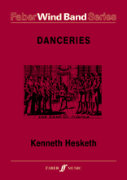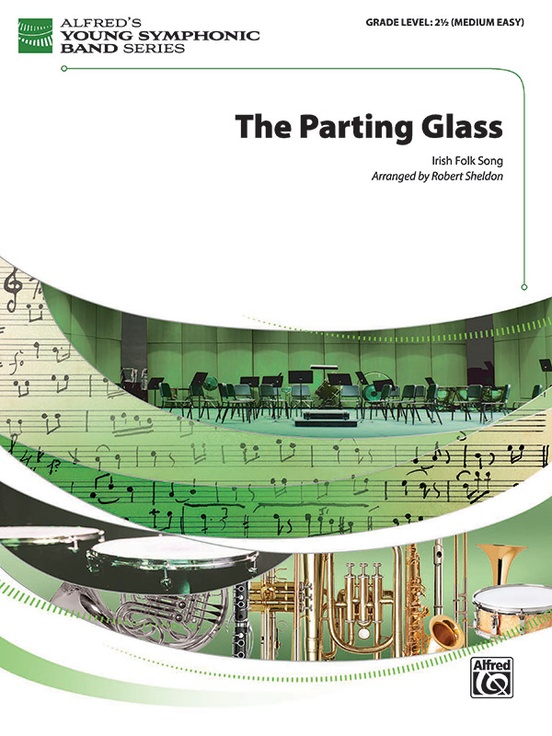Results
-
 £105.00
£105.00Danceries (Set I) (Concert Band - Score and Parts) - Hesketh, Kenneth
The term 'Danceries' can be found in a copy of Playford's Dancing Master, an extensive collection of folk and popular tunes of the seventeenth century (and no doubt earlier). This publication was used by master fiddle players to teach the various dance steps of the day to a nobleman's house or a king's court. Whilst this present set of 'Danceries' cannot be said to be an aid to terpsichorean agility, it will at least set feet tapping! The melodies themselves are a mixture of new and old--well, nearly. Where the old occurs it has been adapted in mood and composition and is often interspersed with completely new material. The harmonies and rhythms bring a breath of the new into these themes and add to the drama of the set.Movement 1: Lull me beyond thee. Gentle and lilting, almost a barcarole, this movement is very much a reverie. The original tune had the name 'Poor Robin's Maggot' - a rather disconcerting title; maggot, however, in seventeenth-century parlance meant whim or fancy. This theme can also be found in The Beggar's Opera by John Gay (first performed in 1728) under the title 'Would you have a young lady' (Air 21).Movement 2: Catching of Quails. A colourful, buoyant scherzo on an original melody. The thematic material is shuttled around the band to contrast with full-bodied tuttis. The last few bars fade away to almost nothing before a final surprise!Movement 3: My Lady's Rest. A tender pavane, also on an original theme, with Moorish leanings. Solos for principal winds and brass contrast with warmer tutti passages. The movement culminates with a final presentation of the theme before evaporating in held flute and trumpet chords.Movement 4: Quodling's delight. The final movement to the set combining one of the melodies from Playford's Dancing Master ('Goddesses') with an original contrasting melody. A dramatic and exuberant ending to the set of 'Danceries'.Duration: 12.00
Estimated dispatch 7-14 working days
-
 £44.95
£44.95TRAUMEREI (Simply Classics Concert Band) - Schumann, Robert - Turnbull, Kit
Traumerei (or Reverie) is the seventh movement from Schumann's Kinderszenen (Scenes from Childhood). The suite was written for piano in 1838 as a musical recollection of his childhood. Originally containing 30 movements the final published edition contained just 13. The movement is just right for that quiet spot in any concert programme. American Grade 2. Duration 2:26
Estimated dispatch 7-14 working days
-
 £62.95
£62.95The Parting Glass
This heartfelt rendition of the beautiful Irish folk song , arranged by Robert Sheldon, is as playable as it is expressive. The various instrumental colors and unexpected harmonies provide moments of warmth, reverie, sentimentality, angst, and resolve that appeal to audiences and ensembles with moderate to advanced abilities. (3:40)
Estimated dispatch 3-5 working days
